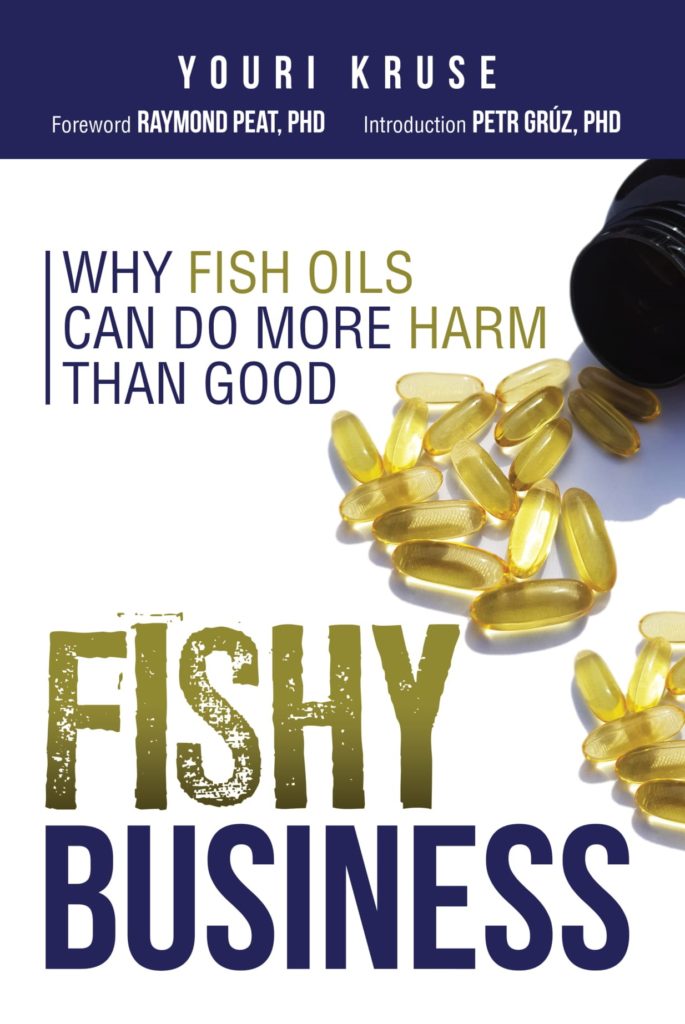Everybody knows that fish oils make you smarter and especially young children need these oils for their growing brains. The research on these topics is thin and the outcomes vary. Overall, there is little or no evidence to supplement the idea that fish oils make you smart. The
“There is not enough evidence to support the routine use of marine oil, or other prostaglandin precursor, supplements during pregnancy to reduce the risk of pre-eclampsia, preterm birth, low birthweight or small-for-gestational age” [1]
Fish Oils May Harm Your Child?
When in 1992 a study found that marine oil (omega 3) infants had poorer scores with regards to weight, length, and head circumferences[2]. This was shown again 4 years later at 6 and 9 months intervals when compared to arachidonic acid[3]. Boys being fed fish oils during lactation (compared to olive oil) have higher blood pressure[4]. Preterm infants fed omega 3 based formulas had slightly lower motor development compared to control preterm infants[5]. Passive communication is lower at age 1 when fish oil is compared to olive oil and (although the same at age 2) and word comprehension at age 1 was inversely associated with erythrocyte-DHA at four months[6]
The problem with researching omega 3 is that cod liver oil is often supplemented as omega 3[7][8]. Cod liver oil has many fatty vitamins (ADEK) which have many health benefits. Or the control is being fed omega 6, which has many ill effects on the body[9][10]. These and other studies accumulated in the following statement in 2007.
“Until evidence accumulates, no recommendation should be made to encourage pregnant women to take ω-3 fatty acid supplements”[11]

[1] Cochrane Database Syst Rev. 2006 Jul 19;(3):CD003402.Marine oil, and other prostaglandin precursor, supplementation for pregnancy uncomplicated by pre-eclampsia or intrauterine growth restriction.
[2] Lipids. 1992 Nov;27(11):901-7. First year growth of preterm infants fed standard compared to marine oil n-3 supplemented formula. Carlson SE1, Cooke RJ, Werkman SH, Tolley EA.
[3] Am J Clin Nutr. 1996 May;63(5):687-97.Effect of long-chain n-3 fatty acid supplementation on visual acuity and growth of preterm infants with and without bronchopulmonary dysplasia.
[4] J Nutr. 2009 Feb;139(2):298-304. doi: 10.3945/jn.108.095745. Epub 2008 Dec 17.Maternal fish oil supplementation during lactation may adversely affect long-term blood pressure, energy intake, and physical activity of 7-year-old boys. Asserhøj M1, Nehammer S, Matthiessen J, Michaelsen KF, Lauritzen L.
[5] Effect of long-chain polyunsaturated fatty acid supplementation of preterm infants on disease risk and neurodevelopment: a systematic review of randomized controlled trials. Lisa G Smithers, Robert A Gibson, Andrew McPhee, and Maria Makrides. Am J Clin Nutr April 2008. vol. 87 no. 4 912-920
[6] Reprod Nutr Dev. 2005 Sep-Oct;45(5):535-47. Maternal fish oil supplementation in lactation: effect on developmental outcome in breast-fed infants.
[7] Pediatrics. 2003 Jan;111(1):e39-44.Maternal supplementation with very-long-chain n-3 fatty acids during pregnancy and lactation augments children’s IQ at 4 years of age.Helland IB1, Smith L, Saarem K, Saugstad OD, Drevon CA.
[8] Pediatrics. 2008 Aug;122(2):e472-9. doi: 10.1542/peds.2007-2762.Helland IB1, Smith L, Blomén B, Saarem K, Saugstad OD, Drevon CA.
[9] J Pediatr. 2010 Dec;157(6):900-5. doi: 10.1016/j.jpeds.2010.06.006. Epub 2010 Jul 23.Effects of early maternal docosahexaenoic acid intake on neuropsychological status and visual acuity at five years of age of breast-fed term infants.
[10] Effects of supplemental fish oil on resting metabolic rate, body composition, and salivary cortisol in healthy adultsEric E NoreenEmail author, Michael J Sass, Megan L Crowe, Vanessa A Pabon, Josef Brandauer and Lindsay K Averill. Journal of the International Society of Sports Nutrition20107:31
[11]Dubnov-Raz G, Finkelstein Y, Koren G. ω-3 fatty acid supplementation during pregnancy: For mother, baby, or neither? Canadian Family Physician. 2007;53(5):817-818.